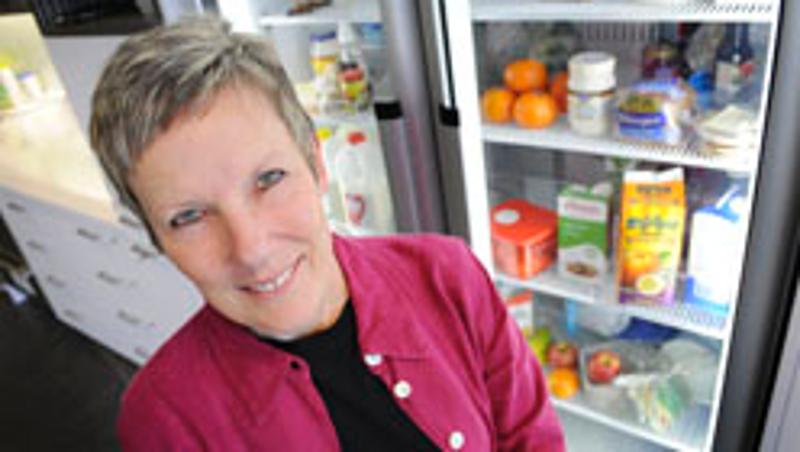
School holidays have already begun for many Queensland kids and Christmas is just around the corner so festive season temptations present a challenge to maintaining a healthy balance.
Professor Lynne Daniels, head of QUT’s School of Exercise and Nutrition Sciences and its PEACH program promoting healthy growth in children, said it was still possible to indulge without going overboard.
“Regardless of age I think most of us enjoy a few treats at this time of the year but it is important not to undo all the good work made towards leading a healthy lifestyle,” Professor Daniels said.
“Planning ahead is wise in the holidays when kids are perhaps a bit bored and looking to graze between meals.
“This is when kids will reach for the chips, chocolates and other lollies but those should be limited to treats. Instead ensure there are healthy snacks available - chopped up fresh fruit and vegies, fruit smoothie popsicles, water-based ice blocks, frozen grapes or jelly made with freshly-squeezed juice.”
Professor Daniels said parents could also use the holidays as a time to engage their children in the kitchen to help make healthy meals and snacks. It keeps them busy and away from screens too.
“Cooking shows are incredibly popular these days so a lot of kids are more inspired to get creative in the kitchen,” Professor Daniels said.
“Getting them involved is a great way to steer them clear of ready-made snacks from the supermarkets. Most of these could never be regarded as a good choice. I urge parents to always read the nutrition label even if the product is in the ‘health food’ section.
“Portion size should also be considered. It’s very easy to overload your plate or go back for seconds and thirds at Christmas lunch or dinner. Sharing dessert is a better option and water with lots of ice, sprigs of mint and slices of lime or other fruits is far better for you than soft drinks and fruit juice.
“As for takeaway food, try to choose healthy options. Avoid fried foods, share portions and consider adding a home-made salad or fruit dessert to the meal. You’ll save money too.”
Professor Daniels added eating in front of screens – televisions, computers or phones for example – was a recipe for poor health.
“It is not always possible but ideally a family should sit down together at a table and enjoy a meal together without distraction and it is good for children to have their screen time limited,” she said.
“Families should also try to get into the routine of daily walks, swims, bike rides or some other form of physical activity; especially during the holidays period.”
The PEACH (Parenting, Eating and Activity for Child Health) program is free and available to families with primary-school aged children. New courses are beginning state-wide in February.
For more information and to enrol in the program, contact free call 1800 263 519 or visit www.peachqld.com.au
Additional info:
- The Queensland Government-funded PEACH™ program is evidence-based, internationally recognised and meets current guidelines and recommendations.
- The family-focused program promotes healthy growth in children and is being offered in response to rising rates of childhood obesity in Queensland.
- The program runs weekly within a school term and after school hours in the local community. Topics covered include:
- - lunchbox and snack ideas, reading labels and ingredients, dealing with fussy eaters, making healthier takeaway choices, making healthy eating affordable and tips on planning ahead.
Physical activity – the benefits of exercise, how to be more active as a family, physical activity recommendations for children, how to reduce screen time and help with setting goals.
- – setting boundaries, planning for change, managing resistance to change, role modelling and how to be balanced and consistent.
Family focus – the program recognises each family is different and so facilitators work with individuals to come up with a plan that suits their needs.
- Research shows that the program works. It has been evaluated as effective in a National Health and Medical Research Council (NHMRC)-funded trial the results of which were published in 2011 in Pediatrics, the official Journal of the American Academy of Pediatrics.
Media contact:
Amanda Weaver, QUT Media, 07 3138 9449, amanda.weaver@qut.edu.au
After hours: Rose Trapnell, 0407 585 901, media@qut.edu.au




